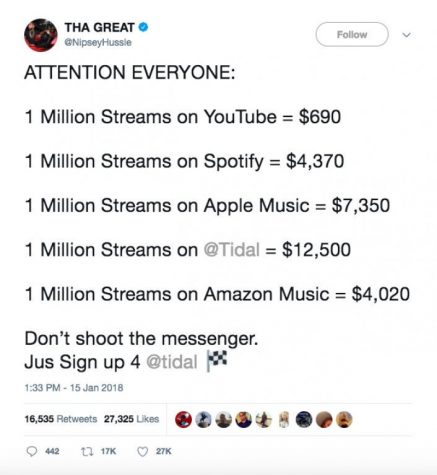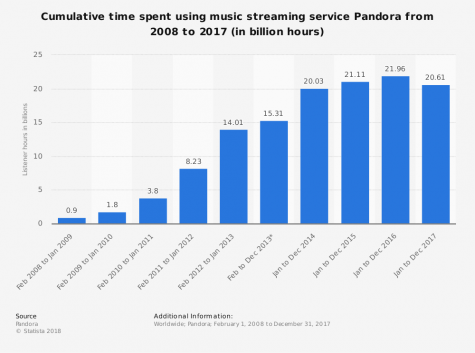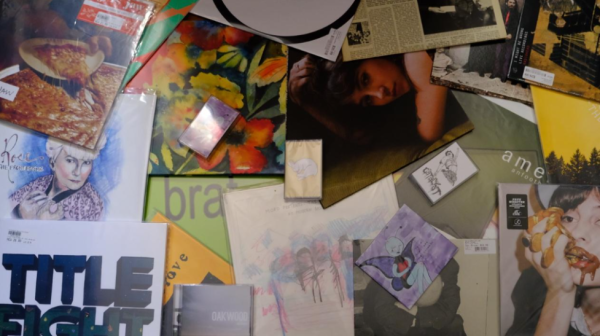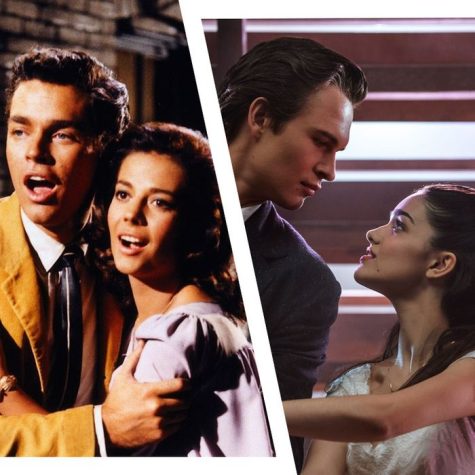Streaming Services Are Ruining Music
This is an opinion piece. Annie Shafran is a Sophomore at Mendham High School. All of the views expressed in the following editorial are her own and do not necessarily reflect the views of The Patriot.
Within the past decade, the major way of listening to music has drastically changed. Stores that used to sell records, 8-tracks, and CD’s, have been run out of business left and right. The new way of listening to music has switched to a more internet-reliant system: streaming. With the formation of streaming services like Spotify and Apple Music, fewer and fewer people have been buying music. These music streaming services are causing more harm, then good to the music industry.
Because of streaming, the public simply is not inclined to buy music anymore. This causes harm to artists, especially smaller, independent ones. 150 streaming of a song is equal to one paid download. An artist would have to have their music streamed 1,500 times in order to make as much money as one album sale. Artists are being cheated out of success through means of belittling their sales.
The business has been transformed into one that heavily favors record labels and bigger names. In a study conducted by Financial Times, it was unveiled that Spotify pays around $0.006 to $0.0084 per stream. This money would then have to be split between the artist(s), songwriters, producers, record labels, and anyone else involved in the process. This leaves more famous artists off fine. But, smaller artists suffer immensely due to the fact that they are being scammed out of hard-earned money. Artists will never make nearly as much money compared to if users were to buy their songs and albums in physical form. Mendham Highschool junior, Daniel Hellriegel illustrated how, “I have access to so many more songs, but [streaming music] is not as good for the artists to make a living.”

Streaming services are also not very welcoming to originality. Unique, different, and independent artists are suffocated under the mainstream music industry’s reign. Streaming services limit the discovery of new music, artists, and sounds. In an interview with The Guardian, Jon Caramancia explained how “The algorithm pushes musicians to create monotonous music in vast quantities for peak chart success.” Popular songs no longer have meaningful lyrics nor require talent to create diverse music for the general public. Due to streaming, people can just copy and plagiarize other artist’s music easier than ever before.
Most streaming services auto-generate playlists for each of its listeners. This enables persons to no longer venture out of their musical comfort zone, and into new genres. When the playlists are created, the songs are chosen based on what the person has listened to in the past. The new songs are then chosen off of the Listening trends. While this may be an effective way to appease people, this also leads to people not expanding their musical taste. The technology used to create these playlists will never go outside of the box and recommend someone an option outside of their musical precedents.
Women are constantly being overlooked by streaming services. On the most popular playlists on Spotify, women are frequently not featured. The playlists are heavily male-dominant. By creating playlists for their listeners, female artists never get the spotlight they deserve. People will not go out of their way to find new music when they have a playlist created right in front of them. This means that the success rates of women artists will be significantly less high than the male’s, due to the simple fact that the Populus would not have been exposed to them.

Over time, music has lost its sense of community due to the growth of online music. People no longer are coming together to share and experience music. Music has become an individual activity, rather than a way to connect and relate with one another. Streaming has played a major part in this. People now only care about what their music preferences are, and no longer care about what other people have to introduce them to. In the 1970’s records, stores were the main “cultural hub” where all groups and types of people would join together in one mutual zone. Now, with people streaming all of their music, there is no longer a need for these stores. Inevitably, people lose their cultural exposure, and no longer are aware of the difference in people and ideas, causing narrow-minded thinking. Streaming music has made people too immersed in their own realm due to the fact that streaming services do not expose different personal to contrasting genres, artists, and songs.
Streaming services focus on exploiting artists and making the most money they can for themselves. All the damage streaming services do to an independent artist’s career can discourage them, and ultimately, make them want to stop creating music and quit the industry. This forces them to lose a creative and expressive outlet.

Annie Shafran is currently a Senior at West Morris Mendham High School. She is involved with Relay for Life and is a Peer Leader. This will be Annie's...





